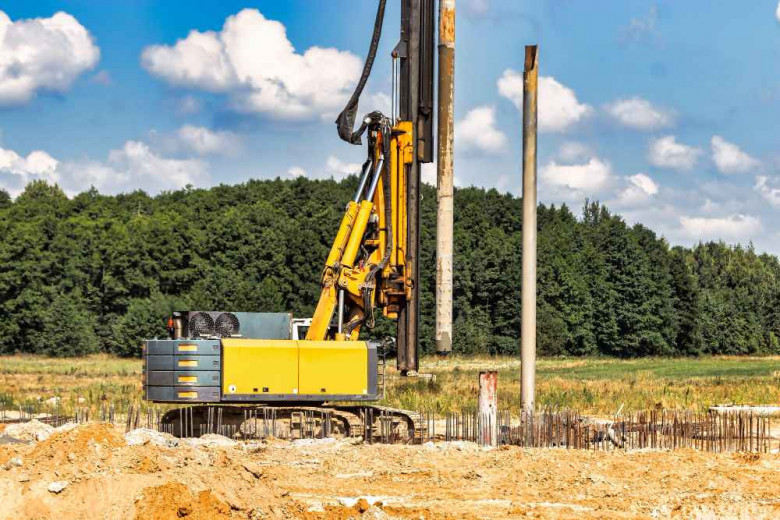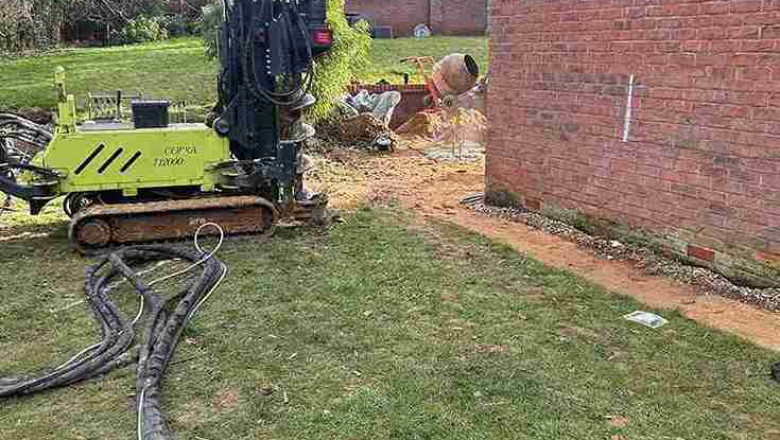views

The foundation is the most important part of any construction project. Before you start building anything, you need to make sure the ground is safe and ready to bear heavy loads. In some parts of the UK, the soil stability is compromised. This means it cannot support heavy or irregular structures.
You have to pay special attention to the groundwork when building something in these areas. If the ground is not prepared properly, buildings can sink, crack, or even fall. Now, the main concern is what types of areas in the UK need special foundation work. Let’s explore this without further ado.
Areas in the UK that Requires Specialised Foundation Work
Areas with Clay Soils
Clay soil can change a lot with the weather. When dry, clay shrinks and swells upon getting wet. These changes make the ground move up and down, which can damage buildings. Clay soil is common in London, especially in outer areas.
Builders often recommend piling services in London to keep the soil stable. They dig deeper to find stronger soil below the clay. They may also use special mats that spread the weight of the building better. Without these advanced foundation works, homes can easily develop cracks in walls and floors.
Flood Zones
Places that often flood need special foundations. The soil here is usually soft and wet. This makes it too weak to support a heavy building. If a normal foundation is used, the building may sink or tilt over time. Towns near the River Severn often face this problem.
Builders in these places use stronger methods like piling. They hammer or screw long, strong poles deep into the ground until they reach solid soil or rock. As a result, the building stands on these poles instead of the weak surface.
Regions with Chalk or Limestone
Some parts of the UK have ground made of chalk or limestone. These rocks are soft and can dissolve slowly by rainwater. This can create small holes or even large caves under the ground. For example, areas around Winchester have chalky ground.
Builders in these areas check the ground carefully before starting work. They sometimes fill the gaps with special materials. In other cases, they design stronger foundations that spread the building’s weight evenly. This careful planning keeps the structure safe.
Mining Sites
In some regions, people dug mines under the ground many years ago. Even if the mines are closed now, they can still cause problems. Empty tunnels can collapse and cause the ground above to sink. This is a real concern in some parts of South Yorkshire.
Builders fill in the old tunnels or drill down to solid rock to ensure your building remains stable and safe in these areas. They also build flexible foundations that can move a little without breaking. Careful study of old mine maps helps them spot areas with a history of mining.
Areas with Peat Soils
Peat soil is made of partly rotted plants. It is soft, wet, and spongy. It cannot hold heavy weights properly. If a heavy building is placed on this soil, it may slowly sink into the ground. Some parts of Cumbria have lots of peat soils.
Builders often use piling or raft foundations to solve this problem. Sometimes, they remove the peat and replace it with stronger soil before building. Without these special foundation works, buildings in such areas can easily become uneven.
Coastal Areas
These regions often have sandy soil. Sand shifts and moves easily, especially when the wind blows. This makes it hard for a building to stay steady. Some towns, such as Great Yarmouth, have sandy ground. Therefore, building heavy or irregular structures in this area can be challenging.
Professionals use deep foundations that go far into the ground. They may also compact the sand to make it tighter and stronger before they start building. Sometimes, they use retaining walls underground to hold the sand in place. Good planning and strong foundations are mandatory to ensure the safety and stability of homes near the coast.
Areas with Shrinkable Soils
In some areas of the UK, the ground is made up of special soils that can shrink a lot when dry. It often happens when the weather changes. As a result, the ground moves up and down, which can damage the foundations of buildings. Some parts of Kent have this type of soil.
The best way to handle this is to contact reliable piling contractors in Kent. They will recommend flexible piling options that can handle small movements without cracking. When installing piles, they dig deep enough to reach stable soil. This helps in even distribution of the weight and keeps the structure stable.
If you are planning to build a home or office in any of the aforementioned areas, you will need specialised foundation work. Make sure you hire reliable contractors to handle this job.














Comments
0 comment